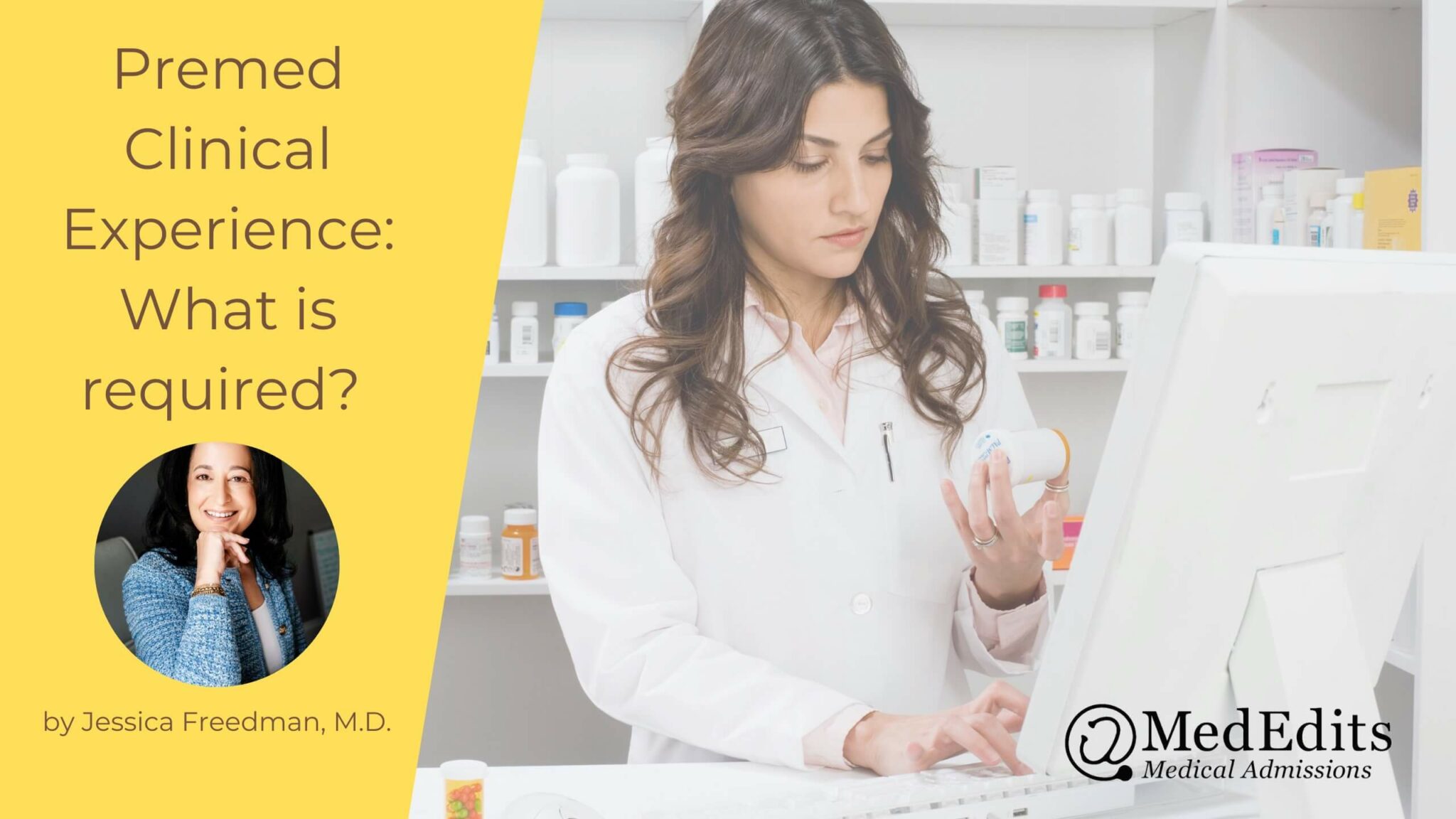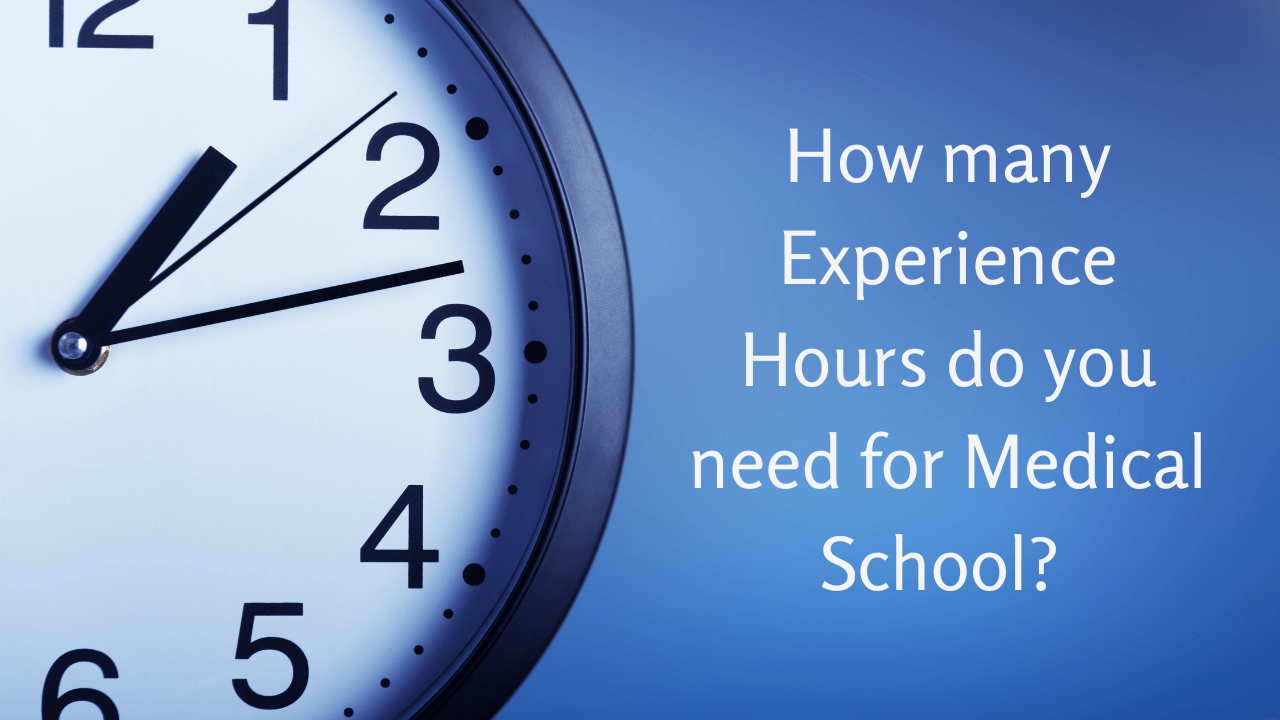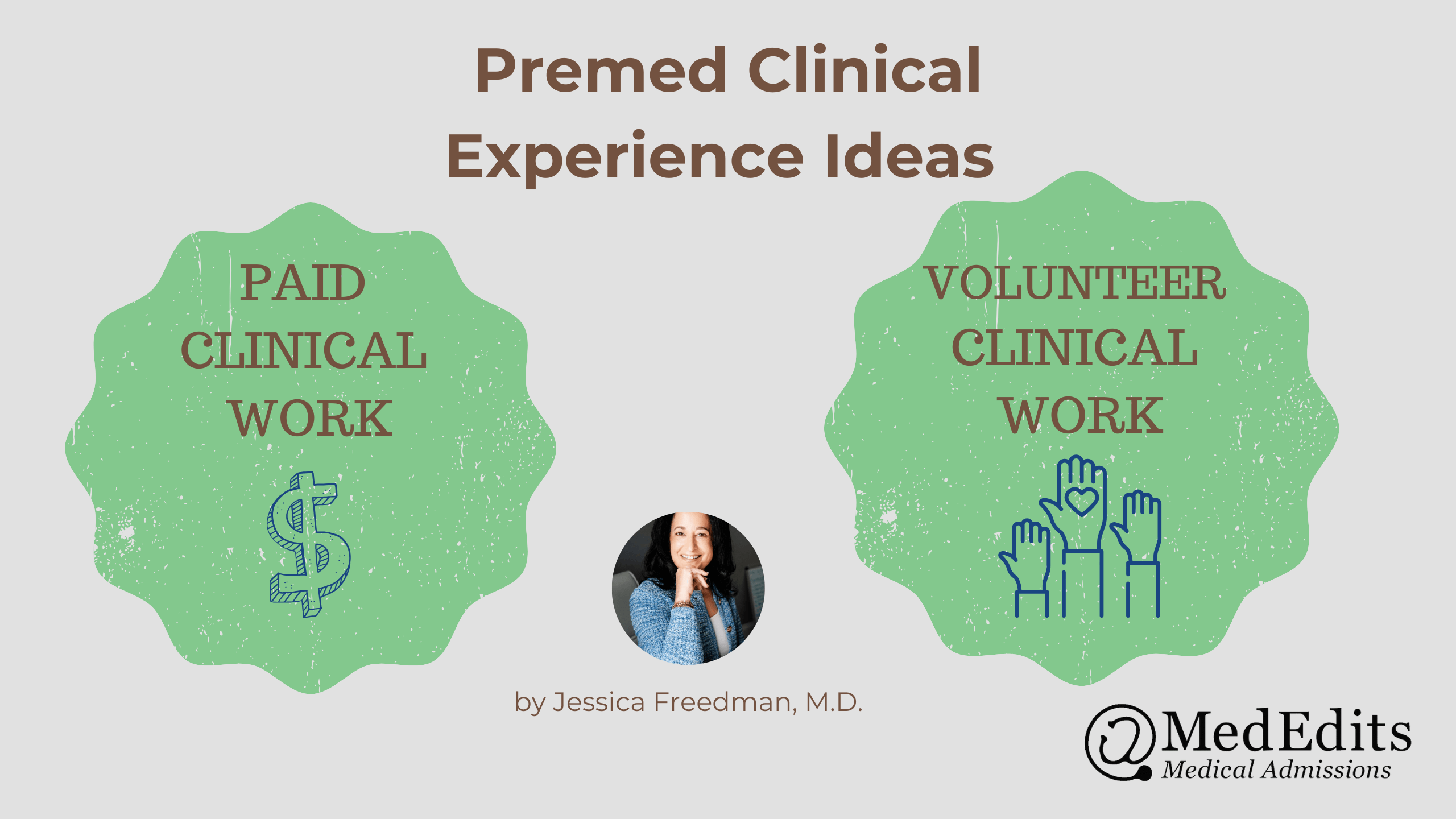HOW MANY EXPERIENCE HOURS DO YOU NEED FOR MEDICAL SCHOOL?
HOW MANY EXPERIENCE HOURS DO YOU NEED FOR MEDICAL SCHOOL? How many clinical experience hours do I need to get into medical school? How many research...
/about_mega.jpg?width=500&height=500&name=about_mega.jpg)
MedEdits Medical Admissions is the nation's premier medical school admissions consulting firm. Since 2007, founder Jessica Freedman, M.D., and our team of physician educators have guided thousands of aspiring medical professionals through their premedical and medical school journey. Our faculty advisors bring invaluable insider knowledge from serving on medical school admissions committees, education committees, and hospital boards. Combined with our specialized medical admissions writing coaches, we provide the comprehensive guidance and industry expertise essential for acceptance to medical school, residency, and fellowship programs.

In the past couple of years or so, I have found that premed students and their parents alike are uber-focused on clinical experience and how much clinical experience is necessary to get into medical school. People typically define clinical experience as working directly with patients in a medical setting that includes, at a minimum, taking vital signs. Perhaps it is because of what students are hearing on TikTok, what parents are reading in Facebook groups, or what everyone is reading on Reddit. In fact, some people are “hearing” that paid clinical work is the most important factor to getting in that it should trump research experience and all other premed extracurricular experiences even for students aiming for top medical schools (this simply isn’t true).
Regardless of where these ideas stem from, I would like to shift the narrative slightly and try to get premeds and their parents thinking in a different way.I would encourage everyone instead of being solely focused on “clinical experience,” to think of these experiences within the framework of “patient-facing experience” instead. When deciding what experiences to pursue, focus on how the experience will improve a student’s skills, personal growth, and allow them to interact directly with patients and providers even if not caring for patients directly.
I will highlight a few students from our most recent cycle who received multiple allopathic medical school acceptances. These students had no actual clinical work yet had valuable patient-facing experiences:For those of you who know me, you are aware that I love data and like to substantiate, when possible, our observations with metrics. For that, we turn to the Medical School Admissions Requirements (MSAR) database. Here are a few data points from the MSAR you may find interesting.
In Vanderbilt’s most recent matriculating class, 47% of students had paid clinical work and 87% had clinical volunteer experience.
In Johns Hopkins most recent matriculating class, 52% of students had paid clinical work and 89% had clinical volunteer experience.
In Stanford’s most recent matriculating class, 38% of students had paid clinical work and 90% had clinical volunteer experience.
I think it is possible, because of what students think they need, that more applicants, in general, have paid clinical experience before applying to medical school. In other words, I am not sure medical schools are specifically seeking out applicants who have worked in clinical settings; it may be that a larger percentage of applicants now have that experience before applying. This could explain why some medical schools have seen an increasing percentage of matriculants with paid clinical experience.
Like most things in medical school admissions, there are numerous pathways to success – some of which may include hands-on clinical work and some of which may not. There are multiple pathways to a successful medical school application and the quality of one’s interactions with patients and the medical team, regardless of the specific medical setting, is what’s most valuable. We encourage students to embrace a variety of experiences that will broaden their understanding of the patient experience rather than focusing solely on clinical hours.
/about_mega.jpg)
Jessica Freedman, M.D., is a board-certified emergency physician, former faculty member, medical school admissions committee member, and Associate Residency Director at the Icahn School of Medicine at Mount Sinai. She is the founder and chair of MedEdits Medical Admissions. Since 2007, she has helped thousands of students navigate the medical school admissions and residency match processes, with more than 95% of comprehensive clients gaining acceptance. She is the author of four books on medical admissions and host of The Oath podcast.

HOW MANY EXPERIENCE HOURS DO YOU NEED FOR MEDICAL SCHOOL? How many clinical experience hours do I need to get into medical school? How many research...

Premed Clinical Experience Ideas When deciding which clinical experience to explore, keep in mind that any “patient-facing” opportunity qualifies as...

1 min read
PREMED INTERNATIONAL CLINICAL EXPERIENCE You are a premed searching for clinical experience. You stumble upon this: Join us as we travel to Central...